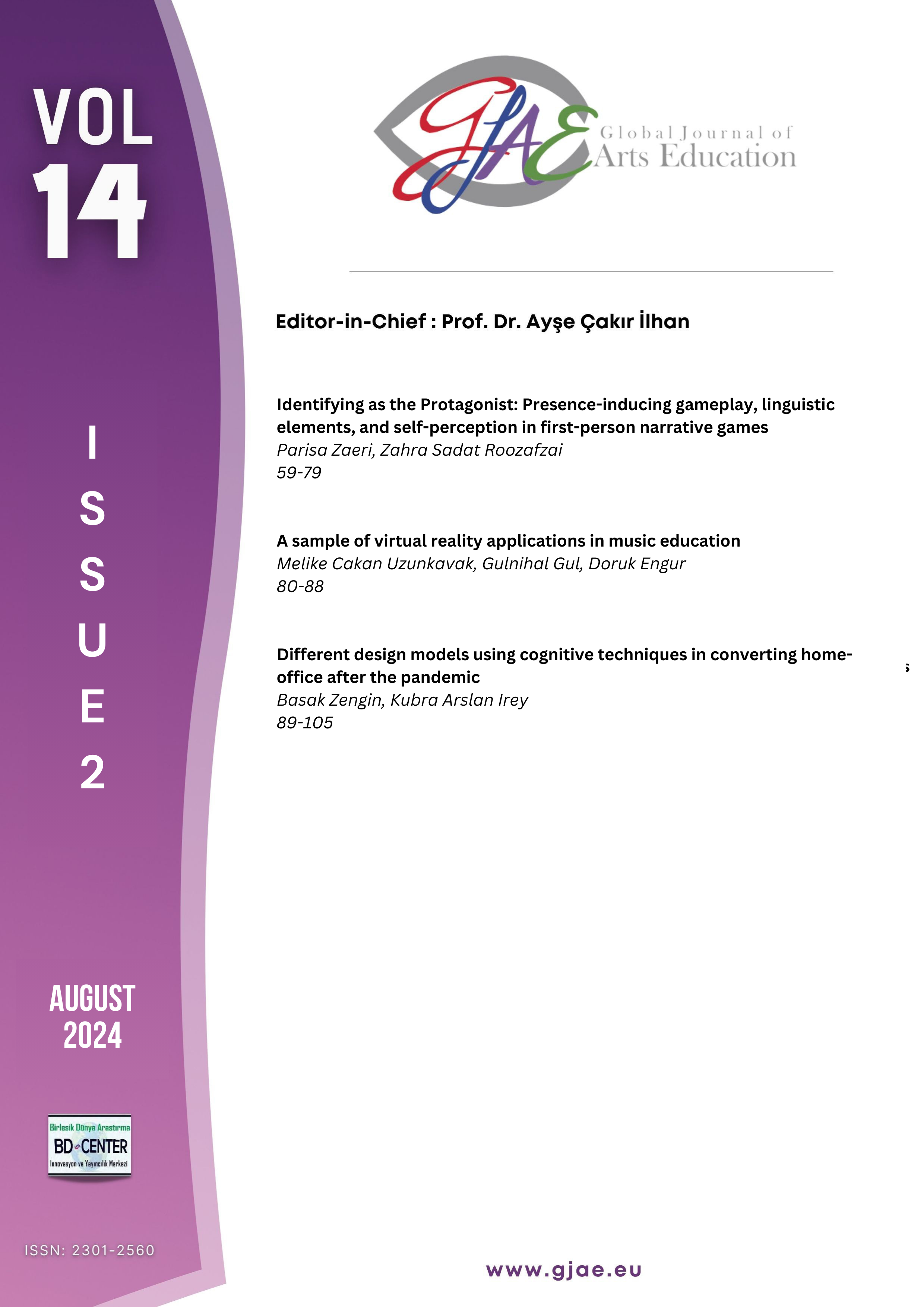Identifying as the Protagonist: Presence-inducing gameplay, linguistic elements, and self-perception in first-person narrative games
Main Article Content
Abstract
This study investigated the psychological implications of presence-inducing gameplay in First-Person Narrative Computer Games, on player identification and self-perception. The research aimed to understand how players' interactions with game protagonists can impact their self-concept and personal identity, by examining the interplay between presence-inducing gameplay elements, linguistic aspects, and player engagement. Through a mixed-methods approach, the study combined in-depth interviews and thematic analysis of players' reflections to explore the potential psychological effects of FPNCGs. The study focused on the role of language in reinforcing player immersion and identification with game characters, as well as the narrative context provided through dialogue and narration. The findings of this study provide valuable insights into the broader implications of FPNCGs for game development, player well-being, and the potential of these immersive gaming experiences to facilitate personal growth and self-exploration. By considering the psychological impact of presence-inducing gameplay elements and linguistic aspects, this research contributes to the ongoing discourse surrounding the influence of FPNCGs on players' identity and understanding of self.
Keywords: First-person narrative computer games ; player identification; presence-inducing gameplay; self-perception.
Downloads
Article Details
Authors who publish with this journal agree to the following terms:
- Authors retain copyright and grant the journal right of first publication with the work simultaneously licensed under a Creative Commons Attribution License that allows others to share the work with an acknowledgement of the work's authorship and initial publication in this journal.
- Authors are able to enter into separate, additional contractual arrangements for the non-exclusive distribution of the journal's published version of the work (e.g., post it to an institutional repository or publish it in a book), with an acknowledgement of its initial publication in this journal.
- Authors are permitted and encouraged to post their work online (e.g., in institutional repositories or on their website) prior to and during the submission process, as it can lead to productive exchanges, as well as earlier and greater citation of published work (See The Effect of Open Access).

